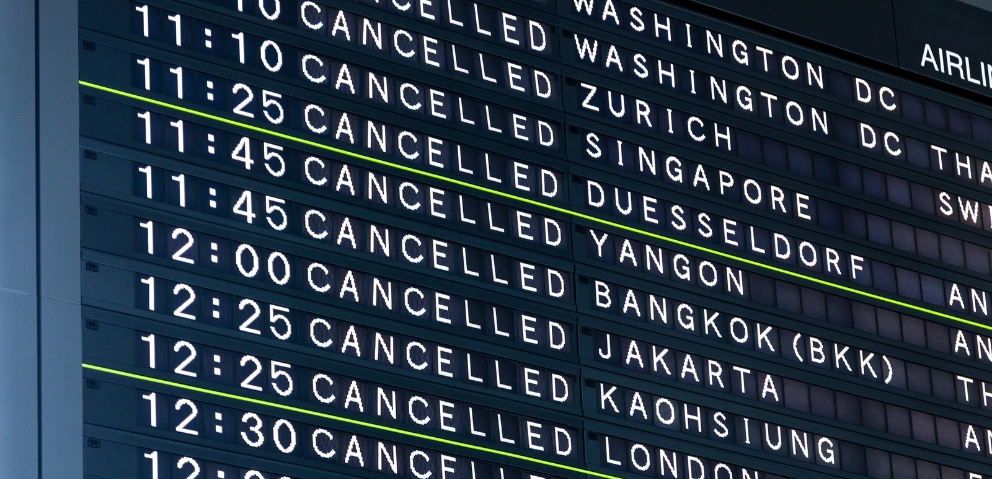How to Cancel a Flight and Not Lose the Value of the Ticket
04 April 2023

As a frequent traveler, I understand how frustrating it can be when plans change, and you need to cancel a flight. Not only is it a hassle to deal with, but it can also come with a hefty price tag. However, there are ways to cancel a flight and not lose the value of your ticket.
In this article, I'll provide tips on understanding airline cancellation policies, cancelling within 24 hours of booking, changing your flight instead of cancelling, requesting a refund, using travel insurance for cancellation coverage, and avoiding cancellation fees. I'll also offer advice on how to rebook a cancelled flight, keeping track of cancellations and delays, and exploring alternatives to cancelling a flight.
Understanding Airline Cancellation Policies
One of the most important things to understand when it comes to cancelling a flight is the airline's cancellation policy. Each airline has its own policy, and it can vary depending on the type of ticket you purchased. Before booking a flight, it's essential to review the airline's cancellation policy and understand any fees or restrictions that may apply. Some airlines may offer a full refund for cancellations made within a certain time frame, while others may only offer a partial refund or no refund at all.
Cancelling Your Flight Within 24 Hours of Booking
If you need to cancel your flight shortly after booking, you may be able to do so without incurring any fees. Under the Department of Transportation's 24-hour rule, airlines are required to allow passengers to cancel a flight within 24 hours of booking without penalty.
This rule applies to all flights departing from or within the United States, regardless of the airline. If you need to cancel your flight within 24 hours of booking, contact the airline directly to request a refund.
Changing Your Flight Instead of Cancelling
If your plans have changed, you may be able to change your flight instead of cancelling it. Many airlines allow passengers to make changes to their flights for a fee.
The fee can vary depending on the airline and the type of ticket you purchased. Before making any changes, review the airline's change policy and understand any fees or restrictions that may apply. If you're unsure about your options, contact the airline directly to discuss your situation.
Requesting a Refund for a Cancelled Flight
If your flight has been cancelled by the airline, you may be entitled to a refund. Under the Department of Transportation's regulations, airlines are required to offer a refund for cancelled flights, regardless of the reason for the cancellation. If your flight has been cancelled, contact the airline directly to request a refund. Keep in mind that it may take several weeks to receive your refund, depending on the airline.
Using Travel Insurance for Cancellation Coverage
If you're concerned about losing the value of your ticket due to a cancellation, consider purchasing travel insurance. Many travel insurance policies offer cancellation coverage, which can provide reimbursement for non-refundable travel expenses if your trip is cancelled for a covered reason. Before purchasing travel insurance, review the policy carefully and understand any exclusions or limitations that may apply.
Tips for Avoiding Cancellation Fees
To avoid cancellation fees, it's important to understand the airline's cancellation policy and any fees or restrictions that may apply. If you need to cancel your flight, try to do so as soon as possible to avoid any additional fees.
Additionally, consider purchasing a flexible ticket that allows for changes or cancellations without penalty. If you're unsure about your options, contact the airline directly to discuss your situation.
How to Rebook a Cancelled Flight
If your flight has been cancelled, you may need to rebook your travel plans. Contact the airline directly to discuss your options. In some cases, the airline may offer to rebook your flight at no additional cost. If you need to make alternative travel arrangements, consider booking with a different airline or using a travel booking site to compare prices.
Keeping Track of Flight Cancellations and Delays
To stay informed about flight cancellations and delays, consider signing up for alerts from your airline or using a flight tracking app. This can help you stay up-to-date on any changes to your travel plans and allow you to make alternative arrangements if necessary.
Alternatives to Cancelling a Flight
If you're unable to cancel your flight without incurring fees, consider exploring alternatives to cancelling. For example, you may be able to change your travel dates or destination to avoid cancellation fees. Alternatively, you can try to sell your ticket to someone else or use it for a future trip.
Conclusion
Cancelling a flight can be a frustrating and expensive experience, but it doesn't have to be. By understanding airline cancellation policies, cancelling within 24 hours of booking, changing your flight instead of cancelling, requesting a refund, using travel insurance, and avoiding cancellation fees, you can ensure that you don't lose the value of your ticket.
If you do need to cancel your flight, remember to stay informed about cancellations and delays, explore alternatives to cancelling, and contact the airline directly to discuss your options. With these tips in mind, you can navigate the cancellation process with confidence and ease.
If you have any questions or concerns about cancelling a flight, contact the airline directly or consult with a travel professional for assistance. Happy travels!
